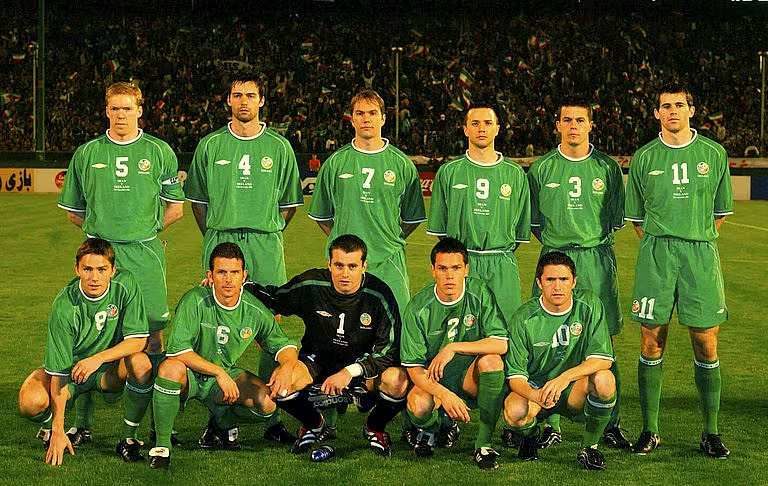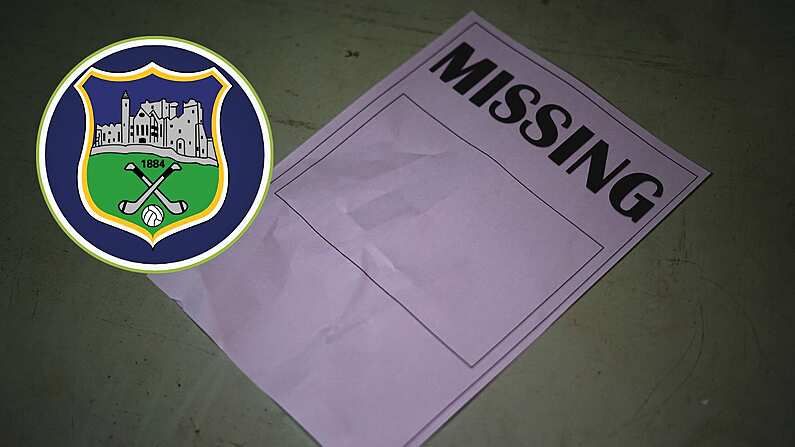24 years ago, the Irish football team lined up in the Azadi Stadium in Tehran against Iran. They were favourites to go through to the World Cup, having won the first leg of the play-off 2-0 and possessing a comfortably stronger starting XI.
Rather annoyingly for Ireland, however, is that there were roughly 64,000 more people in the stadium than there was the week previously in the old Lansdowne Road. Of the 100,000 fans packed into the Azadi, 99,000 of them were cheering thunderously for Iran.
Qualification processes have rarely been fair to the Irish team, and even after going unbeaten in their qualification group that featured Portugal and the Netherlands, the powers that be had put this one last hurdle in their way.

Nothing conveyed the passion of Iranian football than the words of their coach Miroslav Blasevic in the lead up to the game. He had clearly bought into this passion and mixed with a bit of Croatian madness brought a rather extreme pledge from the manager if Iran were to lose their AFC play-off to the United Arab Emirates, and of the Ireland match he said, “It is still the same. If we fail now, I will hang myself from the crossbar on the pitch.”
"I know and respect Ireland because there has been many years of friendship between this country and me, so I hope you will all grieve for me if it happens."
Unfortunately, it would take a lot more than Blasevic’s fulfilling his promise, to dampen Irish celebrations if they were to qualify for an international football tournament.

The most historically relevant aspect of this event came to pass when it was announced that - after initial refusal - a certain number of female Irish fans would be allowed enter the stadium. It was the first time in over 20 years that women would be allowed in the Azadi Stadium.
Former Ireland footballer and famous travel agent Ray Treacy reported from Tehran that the women would be “accommodated in VIP area of the stadium.”
The reality was that the experience for Irish women in Tehran - all of whom were required to wear hijabs - was an unpleasant one. Writing in The Observer, Nicola Byrne described the reaction to Irish women in the crowd as "comical, aggressive, and disturbing."
It was a strange addition to a strange occasion in Tehran but one thing had not changed - the immense support of the travelling Irish fans.
Even if they were outnumbered 99 to 1, the Ireland supporters more than made their voices heard in the cauldron of the Azadi Stadium.
The Sportsfile photos of the day (both inside and outside the stadium) are a wonderful snapshot of a memorable day.

14 November 2001; Irish soccer fan Brendan O'Dell, from Corofin, Clare, gets some help in finding his way around Tehran with the help of the Hotel Commissionaire at the Estegal Grand Hotel in Tehran, Iran, ahead of the Iran v Republic of Ireland - 2002 FIFA World Cup Qualification Play-Off Final Second Leg. Photo by Brendan Moran/Sportsfile

14 November 2001; Republic of Ireland fans, from left, Kevin Smith from Summerhill, Sligo, John Kearney from Castleknock, Dublin, and Vincent Murray from Connolly Street, Sligo, pictured at the Estegal Grand Hotel in Tehran, Iran, ahead of the Iran v Republic of Ireland - 2002 FIFA World Cup Qualification Play-Off Final Second Leg. Photo by Ray McManus/Sportsfile

15 November 2001; Supporters let off a smoke bomb during the 2002 FIFA World Cup Qualification Play-Off Final Second Leg match between Iran and the Republic of Ireland at Azadi Stadium in Tehran, Iran. Photo by Brendan Moran/Sportsfile

14 November 2001; Republic of Ireland soccer fans Rory Murphy, left, from Ennis, Clare, and Vincent Kelly from Kilrush, Clare catch up with the latest news on the match in the daily newspaper, the Iran News, ahead of the Iran v Republic of Ireland - 2002 FIFA World Cup Qualification Play-Off Final Second Leg. Photo by Brendan Moran/Sportsfile

15 November 2001; Republic of Ireland fans Richie Lyons from Cork, left, and Brian Behan from Navan Road, Dublin, pictured at the Estegal Grand Hotel in Tehran, Iran, ahead of the Iran v Republic of Ireland - 2002 FIFA World Cup Qualification Play-Off Final Second Leg. Photo by Ray McManus/Sportsfile

15 November 2001; Republic of Ireland fans watch 2002 FIFA World Cup Qualification Play-Off Final Second Leg match between Iran and The Republic of Ireland at The Submarine Bar in Crumlin, Dublin. Photo by Aofie Rice/Sportsfile
Among those in the Irish contingent was the recently departed F1 legend Eddie Jordan, who was pictured with Davy Keogh and Denis O'Brien ahead of kick-off.

14 November 2001; Republic of Ireland fan Davy Keogh, centre, pictured with Jordan Formula 1 team owner Eddie Jordan and businessman Denis O'Brien. before the game. Iran v Republic of Ireland, World Cup Play off 2nd leg, Azadi Stadium, Tehran, Iran. Soccer. Picture credit; Ray McManus / SPORTSFILE *EDI*
Although not nearly as vicious as the situation the women were experiencing in stands, out on the pitch the team had their hands full in what was a nervy performance at times.
Shay Given was nearly beaten on a couple of occasions and was forced into an edge-of-your-seat double save in the second half.
As the minutes wound down, the restlessness and anger of the fans grew, as fires were lit in the stands and the number of smoke bombs and missiles increased.
Writing for the Irish Independent from Tehran, Alan O'Keeffe described the frenetic final minutes of the match inside the stadium.
In the dying minutes of the game, khaki-clad troops wielding long batons rushed Iranian fans beside the Irish enclosure on the upper tier of the giant stadium after a few plastic bottles and buns were thrown at the Irish.
The soldiers rapidly cleared a 20-yard safety cordon around the Irish fans.
Some bottles were also thrown on to the pitch.
A late Iranian goal just before the final whistle would not be enough to prevent the jubilant celebrations of the Irish players and staff.
Given the number of home fans and the state of grievance they were in, these celebrations look risky in hindsight, and the relief and joy of the Irish team seemingly overcame any sense of the mood in the stands.
And so they had overcome the hurdle that was Iran, not just their football team but their fans and their extreme football culture. Ireland had reached its third World Cup in surreal circumstances. Unfortunately, there were a few more bumps on the road to come for Ireland's journey on its journey to Japan/South Korea.














